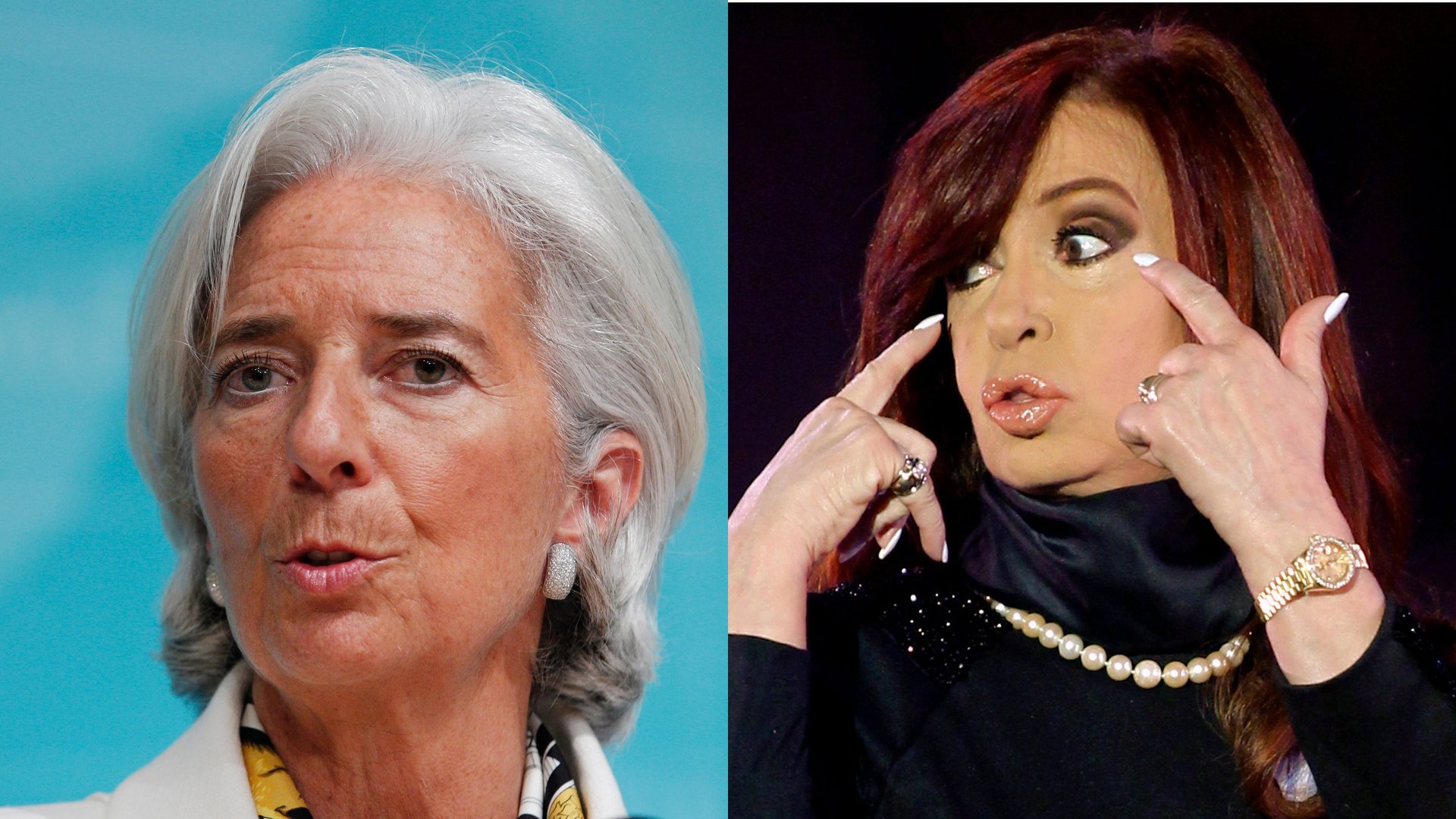Strange bedfellows as the IMF plans to advocate for Argentina
Sometimes, all it takes to heal a broken relationship is a sovereign debt crisis.


Sometimes, all it takes to heal a broken relationship is a sovereign debt crisis.
The battle between hedge funds and Argentina over the country’s bonds still seems set to end in default for the economically troubled country, unless the US Supreme Court chooses to hear their petition for a new ruling. But now in a surprising twist, it appears the International Monetary Fund is set to weigh in on behalf of Argentina, arguing the country should have more leeway to restructure its debts in what would be the institution’s first-ever brief filed before the United States’ highest court.
Their relationship hasn’t always been so friendly. This is the same IMF, led by former French finance minister Christine Lagarde, that warned Argentina that it had earned a “red card” for fudging its economic statistics. Argentina’s President, Cristina Kirchner, fired back, “[s]ince we are comparing football (soccer) with politics and economics, I would like to say that the performance of the head of FIFA has been much better than those of the head of the Fund or the IMF directors.”
The feud between Argentina and the IMF dates back to the country’s 2002 financial implosion and default. In the decade before, Argentina and the IMF had worked together to support Argentina’s currency, which was pegged to the US dollar, with foreign exchange loans. After years of missing economic targets and refusing to devalue the currency, the whole house of cards collapsed. (Where have we seen that recently? Oh, right.)
Argentina was plunged into recession, governments were ousted, and first Kirchner’s husband, then Cristina herself, took power on a platform of fighting back against international financiers by renegotiating debts and seizing foreign businesses—though it’s still not going so well.
The current case in New York concerns a bunch of Argentine debt bought by hedge funds on the cheap just before the country’s default. We’ll spare you the thrilling details, but if Argentina is forced to default by US courts, hold-outs and litigation could become more prevalent, making the already difficult challenge of renegotiating sovereign debt much worse. That in turn would make the IMF’s job getting countries like Greece, Spain, Italy, and Portugal back on financial good terms that much harder. Thus, the IMF wants a chance to find an alternative solution, and arguing for Argentina makes it more likely that the Supreme Court will give it one.
That, of course, has the hedge funds and their allies outraged and lobbying the US Treasury, one of the IMF’s major stakeholders, to block the filing. Any intervention in US courts would be need to be approved before the IMF’s summer recess begins in August; the Supreme Court will announce whether or not it is taking the case in September.